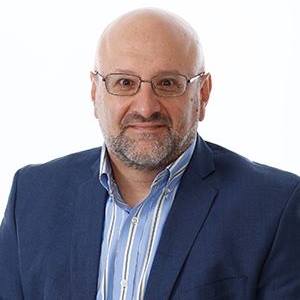Here's a great article about chemo brain I ran across. Lots of good information here.
http://www.texasoncology.com/cancer-treatment/chemotherapy/chemo-brain/
 Forums
Forums
-

Tracy J - Name: Tracy Jalbuena
- Who do you know with myeloma?: Me
- When were you/they diagnosed?: 2014
- Age at diagnosis: 42
Re: Chemo brain - what to expect & will it go away?
Very good article! Thanks for the link, Tracy.
Mike
Mike
-

mikeb - Name: mikeb
- Who do you know with myeloma?: self
- When were you/they diagnosed?: 2009 (MGUS at that time)
- Age at diagnosis: 55
Re: Chemo brain - what to expect & will it go away?
Chemo brain is definitely real! 2015 to present has been my first year back to work, and I struggle to remember little things. I could also be in the middle of a conversation and totally forget what I am even talking about.
I've been on Revlimid maintenance now for five years, and I am seriously considering getting off because the chemo brain affects my life so much.
I've been on Revlimid maintenance now for five years, and I am seriously considering getting off because the chemo brain affects my life so much.
Re: Chemo brain - what to expect & will it go away?
My experience is similar to JeffA's in the second paragraph relating to comments of my wife and my performance in meetings.
I am on Revlimid plus dex and Zometa. The first month was unbearable. So the dex dose was adjusted to half - from 40 to 20 mg per week. After that I noticed following: no sleep for at least 48 hours, slow response to questions or situations (example: red, yellow, and green traffic light while driving), temporary memory loss, both low and high blood pressure, hyperactive brain - as if I have solution to everything - especially in the 48-hour no sleep period. I associate all this to dex.
My dex from the ninth cycle has been further reduced to 16 mg. I am not able to sleep tonight, I am up. Meditation (which I started at age 12) and melatonin are of no help.
I am on Revlimid plus dex and Zometa. The first month was unbearable. So the dex dose was adjusted to half - from 40 to 20 mg per week. After that I noticed following: no sleep for at least 48 hours, slow response to questions or situations (example: red, yellow, and green traffic light while driving), temporary memory loss, both low and high blood pressure, hyperactive brain - as if I have solution to everything - especially in the 48-hour no sleep period. I associate all this to dex.
My dex from the ninth cycle has been further reduced to 16 mg. I am not able to sleep tonight, I am up. Meditation (which I started at age 12) and melatonin are of no help.
-

MMFeb16,15 - Who do you know with myeloma?: Self
- When were you/they diagnosed?: February 16, 2015
- Age at diagnosis: 66
Re: Chemo brain - what to expect & will it go away?
Similar to MMFeb16,15, I've been on Revlimid, dex, and Zometa for the past 2 1/2 years. There was a movie years ago, something like "If It's Tuesday, It Must Be Belgium". That's much how my week is, except I can tell what day it is by my physical and mental state. For example, if I'm amped up and talking 100 times more than I normally would, it must be Thursday. My cycle starts on a Wednesday, and I take my drugs in the evening - 25 mg of Revlimid daily, and 25 mg dex spread over two days, which helps limit the effect of the dex. My typical week is:
- Wed: mentally and physically about normal
- Thu: hyper, can't keep mouth and brain in sync, but still functional, typically don't get to sleep until 3:00 a.m. or so.
- Fri: hyper early, start crashing late afternoon, constipation setting in
- Sat: constipation getting worse, a bit of queasiness, still fatigued, but functional
- Sun: no longer fatigued if I slept well, but very queasy. System starts clearing later in the day.
- Mon: system still recovering from clearing out but otherwise about normal
- Tue: mentally and physically about normal
-

Kevin J - Name: Kevin J
- Who do you know with myeloma?: myself
- When were you/they diagnosed?: Jan 2011
- Age at diagnosis: 52
Re: Chemo brain - what to expect & will it go away?
I'm wondering about this as well.
I'm in a clinical study where they essentially double the length of time with which I was treated with Revlimid, Velcade, and dexamethasone. Seems to be working out well. No M-spike for the last 12 months, light chain ratio was actually 1.0 this month! Only problems are neuropathy (usually not bad at all) and what seems to be memory issues.
From an analytical perspective, my mind seems to work find. Where I find trouble is coming up with words, whether it be names, things, or whatever. I find myself reach and groping mid conversation at times. And usually the word I'm having trouble with is something quite obvious. I am making sure my doctors take note should I find myself in a position where I need to file for disability (though I don't see that happening, hopefully).
Thanks!
I'm in a clinical study where they essentially double the length of time with which I was treated with Revlimid, Velcade, and dexamethasone. Seems to be working out well. No M-spike for the last 12 months, light chain ratio was actually 1.0 this month! Only problems are neuropathy (usually not bad at all) and what seems to be memory issues.
From an analytical perspective, my mind seems to work find. Where I find trouble is coming up with words, whether it be names, things, or whatever. I find myself reach and groping mid conversation at times. And usually the word I'm having trouble with is something quite obvious. I am making sure my doctors take note should I find myself in a position where I need to file for disability (though I don't see that happening, hopefully).
Thanks!
-

Mank - Name: Mank
- Who do you know with myeloma?: Myself
- When were you/they diagnosed?: February 2017
- Age at diagnosis: 56
Re: Chemo brain - what to expect & will it go away?
I have had almost the identical experience that Mank has had. When I was doing CyBorD (cyclophosphamide, Velcade, and dexamethasone) weekly, it was really noticeable, though not very frequent, after a couple of months. It's mostly gone since my autologous stem cell transplant (ASCT), though every once in awhile it comes back. So it does seem to not be permanent. I'm guessing it depends on where you are in your treatment process, and perhaps which medications you are or are not taking.
I would describe it much as Mank has: it's always a word that I just can't remember. And it's not like that "it's on the tip of my tongue" feeling that people get from time to time. It's more like there's a hole in your vocabulary and that word has just disappeared. It's a very strange and unnerving feeling, especially for a college professor who makes his living with the spoken and written word.
Having talked to friends who have been through various sorts of treatment for other cancers, chemo brain is most definitely real.
This hasn't affected my job performance at all, at least in terms of my ability to write. I've been teaching online since my diagnosis last November (and thanks be for THAT option) and not doing a lot of public speaking. It will be interesting to see what happens when I return to the physical classroom in January and do my first post-ASCT public speaking this fall.
I would describe it much as Mank has: it's always a word that I just can't remember. And it's not like that "it's on the tip of my tongue" feeling that people get from time to time. It's more like there's a hole in your vocabulary and that word has just disappeared. It's a very strange and unnerving feeling, especially for a college professor who makes his living with the spoken and written word.
Having talked to friends who have been through various sorts of treatment for other cancers, chemo brain is most definitely real.
This hasn't affected my job performance at all, at least in terms of my ability to write. I've been teaching online since my diagnosis last November (and thanks be for THAT option) and not doing a lot of public speaking. It will be interesting to see what happens when I return to the physical classroom in January and do my first post-ASCT public speaking this fall.
-

Steve Horwitz - Name: Steve Horwitz
- Who do you know with myeloma?: myself
- When were you/they diagnosed?: November 2017
- Age at diagnosis: 53
Re: Chemo brain - what to expect & will it go away?
I make sure my doctor takes note of the situation. I'm not sure whether I'm going to need to go out on disability at some point down the road (doubtful), so I want to make sure everything is on record. I would advise everyone else to do the same.
-

Mank - Name: Mank
- Who do you know with myeloma?: Myself
- When were you/they diagnosed?: February 2017
- Age at diagnosis: 56
19 posts
• Page 2 of 2 • 1, 2
Return to Treatments & Side Effects
